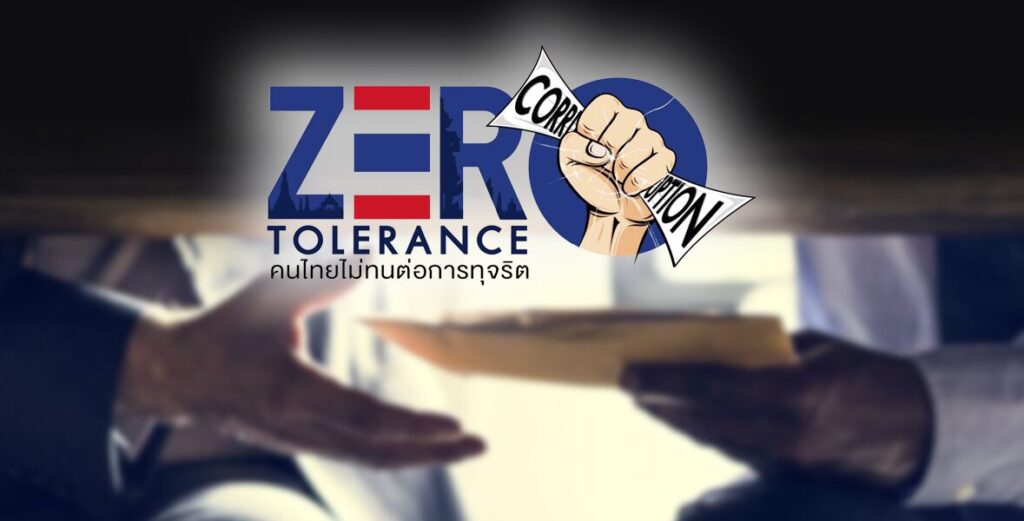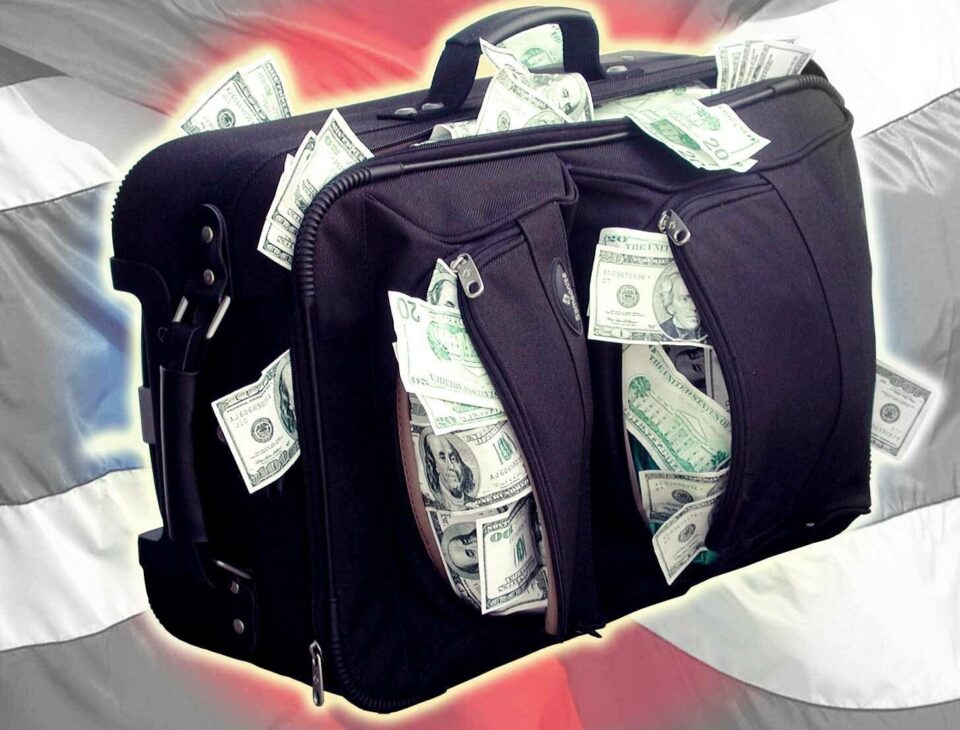Thais’ willingness to put up with widespread corruption seems to be waning, which is placing pressure on political parties to stop merely expressing concern about the issue and begin implementing real remedies.
According to estimates, public funds are diverted into the bank accounts of dishonest officials, costing the nation billions of baht per year. A senior employee of the revenue office in Bangkok’s Ratchathewi district was accused of accepting bribes of roughly 4 million baht in return for the removal of 40 million baht in building and land tax earlier this month. The modestly paid bureaucrat was found to have possessions worth more than 100 million baht after a search of his residence.

Ratchada Suriyakul Na Ayutthaya was sacked from his position as director-general of the Department of National Parks, Wildlife, and Plant Conservation earlier this year for accepting bribes.
Mana Nimitmongkol, secretary-general of the Anti-Corruption Organization of Thailand (ACT), bemoaned that “corruption has not subsided despite the fact that our country has implemented more anti-graft mechanisms.”
Thailand’s level of corruption?

The 2022 Corruption Perceptions Index, compiled and published by Transparency International, places Thailand 101st out of 180 nations. Thailand climbed nine positions from 2021 to the current position. However, Thailand had only improved by one point on the transparency scale.
Mana expressed her displeasure that despite changes in government, there has been no progress in Thailand’s corruption problem throughout the years. Between 35 and 38 out of 100 has been Thailand’s score for the previous ten years.
Mana, though, won’t give up. Even if they appear to be empty at first, he thinks that political promises provide a foundation for future anti-corruption efforts.
“At the absolute least, political parties running in the general election of 2023 must outline their plans for combating corruption. We can pressure them to follow through on their pledges even though they may appear to be hollow words right now, Mana stated.
Thais demand an anti-corruption drive
Prior to the election next month, ACT recently polled respondents about their perceptions of political parties’ and candidates’ anti-corruption strategies.
Even with Thailand’s current economic troubles, the survey, done together with the University of the Thai Chamber of Commerce and the Khon Thai Foundation, concluded that corruption is the top issue people anticipate the next government to address. The most urgent issue the new government should address, according to Thais in 2019, is the expense of living.
According to the 2,255 respondents in the survey, 83.6% of voters will avoid parties who do not adopt anti-corruption policies because they believe this shows a lack of openness. In response to the argument that corruption was too entrenched to eradicate in any case, just 16.4% of respondents indicated they would support a party that had no anti-corruption programs.
Meanwhile, 25% said “corruption” should be the first issue the next administration deals with. The next three issues were social disparity, educational issues, and the economic gap.
According to about 18% of respondents, the incoming government must take action against any of its members or parties that are discovered to be involved in corruption. Additionally, 16.7% believed the incoming administration would increase transparency by making crucial data online accessible.
The results show that the respondents are aware of how corruption contributes to issues like bad economic conditions, a low standard of living, and drug misuse, according to Mana. Voters in the present day expect political parties to have concrete anti-corruption programs.
Positions of parties towards corruption
The Move Forward Party, which is well-liked by the younger generation, has proposed a comprehensive plan to eradicate corruption from Thai society. For instance, it intends to develop intelligent technologies to avoid graft, release state data without delay, and reward whistleblowers in order to promote transparent and corrupt-free administration.
Additionally, Move Forward has promised to guarantee the prompt provision of government services. The possibility of persons paying “tea money” in order to receive special treatment for governmental services decreases when there is less red tape. The party also pledges to guarantee impartiality and transparency in police hiring and promotion procedures. The police department is frequently accused of selling important positions in lucrative positions to the highest bidder.
A serious anti-corruption stance has also been taken by the Thai Sang Thai Party. An Anti-Corruption Center would be established in accordance with its policy to gather data on alleged incidents of graft and take appropriate action.
Anti-corruption is a key component of the United Thai Nation Party’s policy program, which includes General Prayut Chan-o-cha running for prime minister. It has committed to carry out appropriate inquiries into apparent anomalies at all levels and address legal gaps that encourage corruption.
The Democrats, Thailand’s oldest political party, are adopting the slogan “Honest Democracy Free from Money Politics” in an effort to present themselves as a force opposed to all types of corruption.
The Seree Ruam Thai Party promises to eradicate corruption, uphold morality, and utilise public funds.
Chart In order to increase transparency and reduce corruption, Pattana Kla and Pheu Thai have vowed to use technology.
Guidelines and expectations
Mana concurs that the likelihood of graft in government organizations decreases as they become more transparent. He advises the new administration to change data-disclosure requirements in order to foster greater transparency.
“The situation will become better if each agency is urged to fight corruption. Results will be obvious, he assured.
Mana also anticipates that parties would exercise control over their friends and members, establish explicit barriers to corruption, and punish corrupt individuals.
Thanisara Ruangdej, CEO and co-founder of Punch Up & WeVis, which aims to empower citizens through data, claimed that her organization has been developing tools for voters to hold their elected officials accountable. These tools concentrate on what political parties pledged to do regarding data disclosure, corruption investigation, and related enforcement throughout their election campaigns.
As individuals get more politically engaged, she said, “our tools will be useful.”
Punch Up & WeVis made the decision to enter the anti-corruption space after observing that the government preferred to provide justifications rather than information and that the general population wanted to contribute to the improvement of their country but lacked the means to do so.
Thanisara continued, “We’re working to make sure that everyone can contribute and have an impact.




